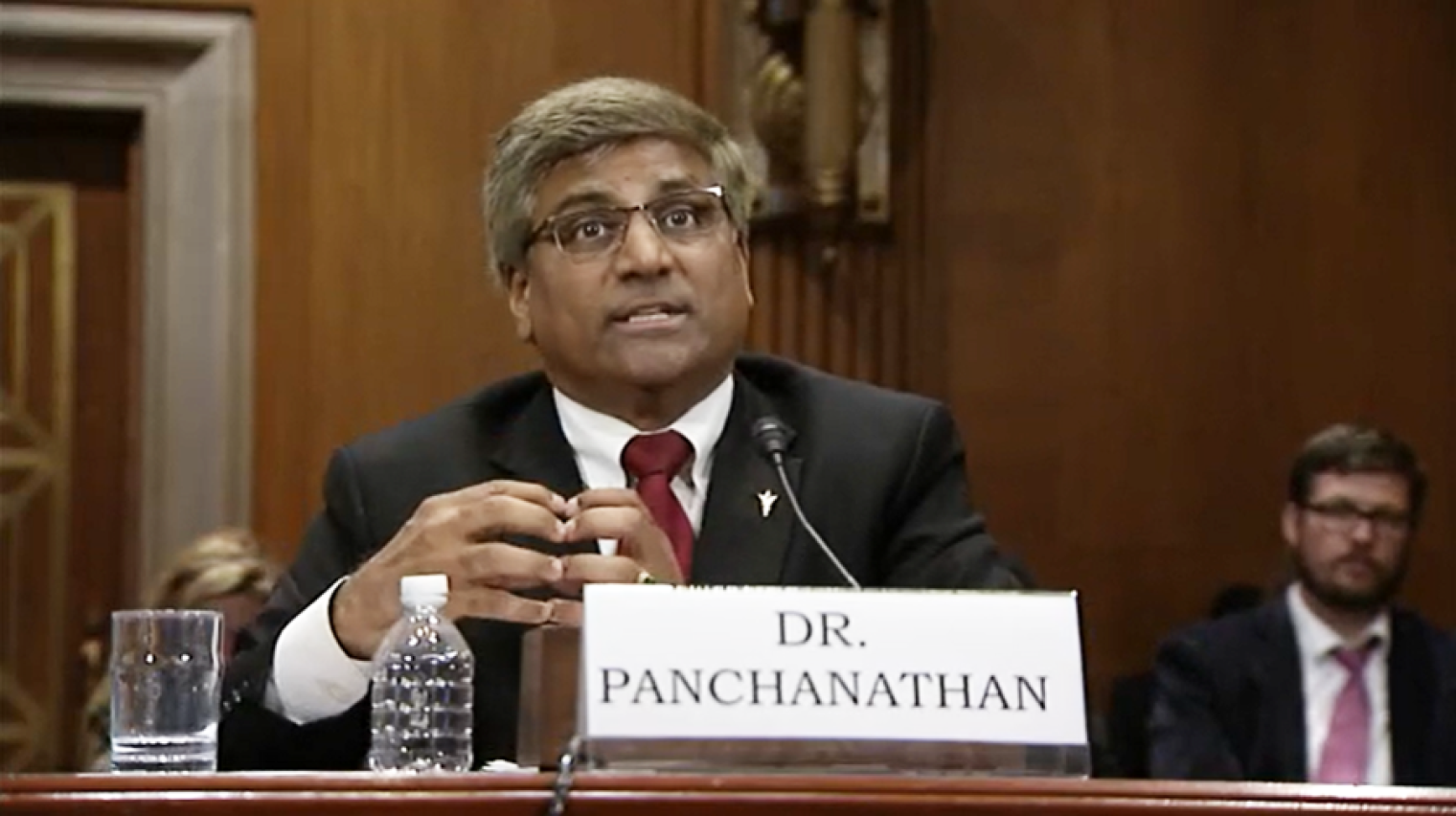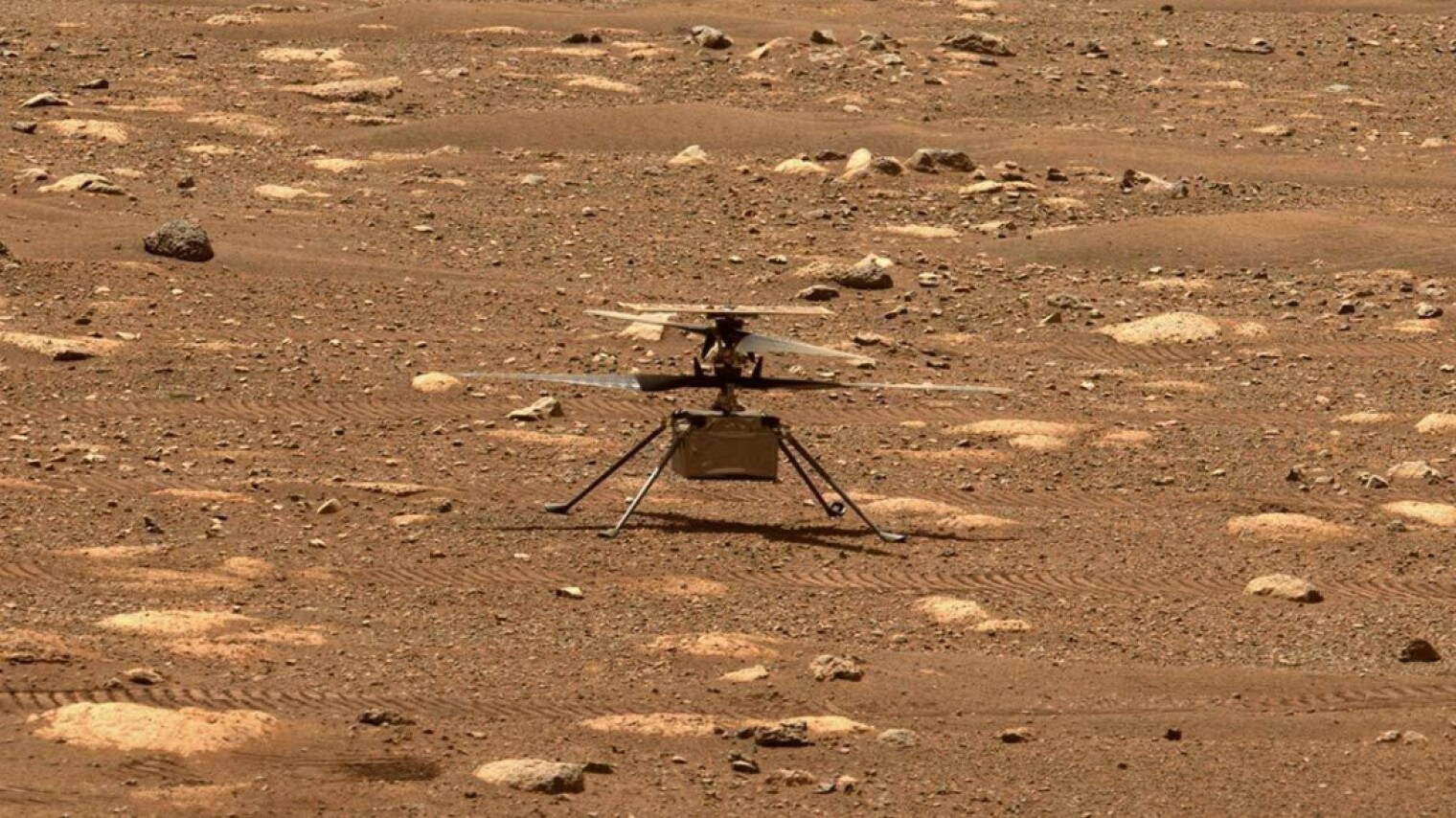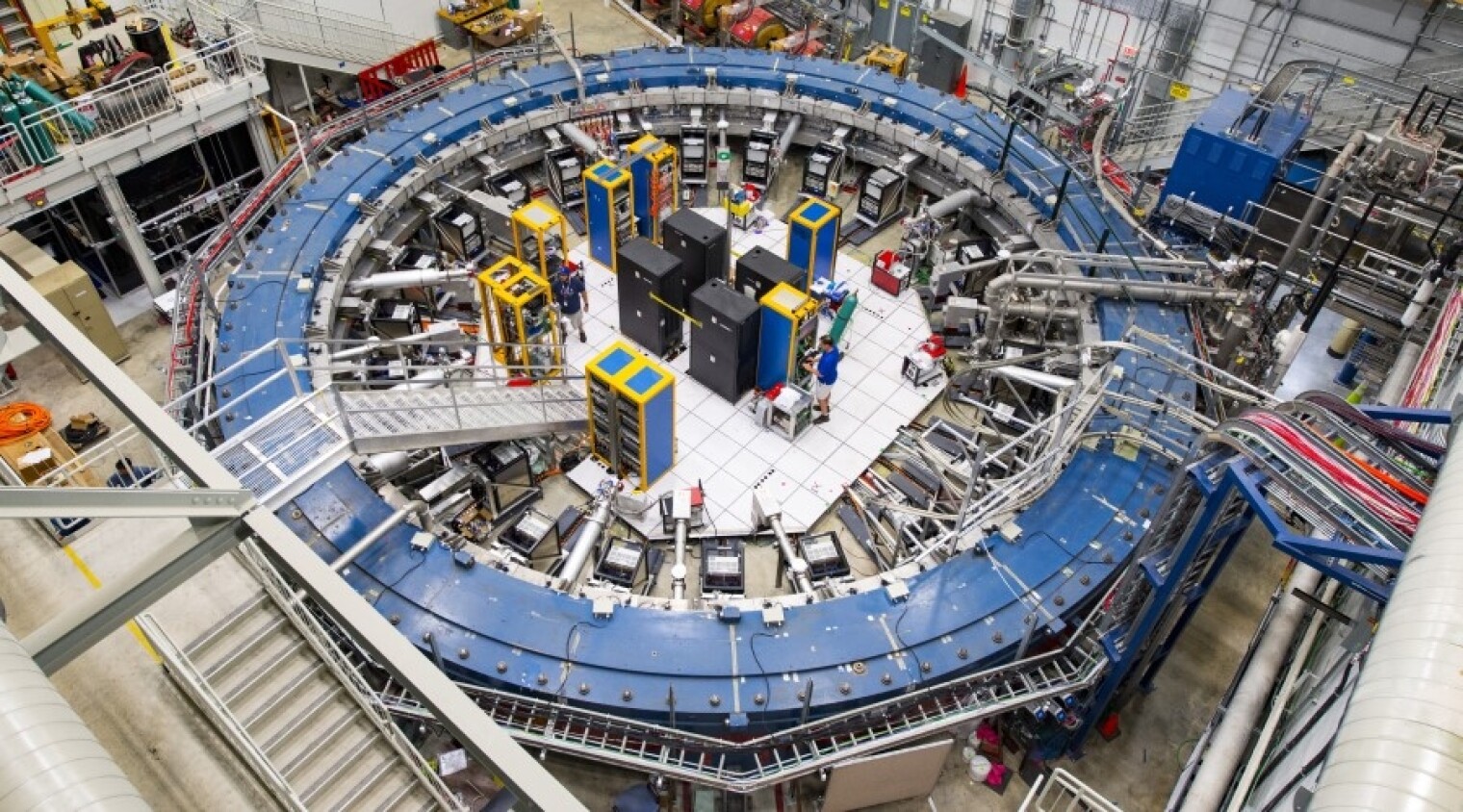|
What’s Ahead
 |
| Sethuraman Panchanathan speaks at a Senate hearing in 2019 shortly before his nomination to be director of the National Science Foundation. (Image credit – Senate Commerce, Science, and Transportation Committee) |
NSF Expansion Proposals up for Debate in Congress
A series of hearings this week will offer key congressional committees their first opportunity to publicly weigh in on proposals to dramatically expand the National Science Foundation. NSF Director Sethuraman Panchanathan will testify before Senate and House appropriators on Tuesday and Wednesday, respectively, to discuss President Biden’s request to increase NSF’s budget by 20% to just over $10 billion for the next fiscal year and create a directorate focused on translating research advances into new technologies. Biden has also proposed Congress provide the agency $50 billion over several years through infrastructure legislation, in large part to jumpstart the new directorate. Separately on Wednesday, the Senate Commerce, Science, and Transportation Committee is holding a hearing to review the Endless Frontier Act, which similarly envisions creating a massive technology-focused NSF directorate. Among the six witnesses is Kelvin Droegemeier, who led the White House Office of Science and Technology Policy during the Trump administration and briefly doubled as acting NSF director before Panchanathan’s confirmation.
The Endless Frontier Act is championed by Senate Majority Leader Chuck Schumer (D-NY) and Sen. Todd Young (R-IN), who are expected to introduce an updated version imminently. A draft version in circulation proposes that Congress provide $100 billion over five years to NSF as a whole, rather than specifically to the new directorate as in the original bill, and also drops the idea of making the directorate head a Senate-confirmed position. The draft also adds provisions specific to the Commerce Department, proposing to greatly expand the Manufacturing USA institute network and create a new program focused on increasing the resiliency of supply chains for critical technologies. While Senate committee leaders have yet to comment on the Endless Frontier Act, the House Science Committee has advanced a competing bill that proposes creating a more modestly sized directorate that would address “societal challenges” rather than focus exclusively on technology.
House and Senate Panels Taking Broad Look at US Innovation
The House Science Committee is holding a hearing on Thursday titled, “Reimagining Our Innovation Future.” The witness panel includes former Energy Secretary Ernest Moniz, President’s Council of Advisors on Science and Technology Co-Chair Frances Arnold, Carnegie Mellon University President Farnam Jahanian, and former Lockheed Martin CEO Norm Augustine, who has long been an influential voice in science and technology policy. Simultaneously on Thursday, the Senate Energy and Natural Resources Committee is holding a hearing on how the Department of Energy’s R&D programs support U.S. economic competitiveness. The witness panel includes Los Alamos National Lab Director Thom Mason and former DOE Under Secretary for Science Paul Dabbar, as well as representatives from RMI and Actuate, nonprofit organizations that aim to catalyze technology development. Actuate is led by former Defense Advanced Research Projects Agency Director Arati Prabhakar.
House Appropriators Examining NOAA Climate Services
The House Appropriations Committee is holding a subcommittee hearing on Thursday to examine the role of the National Oceanic and Atmospheric Administration in providing “climate services,” such as data and forecast products that inform climate change adaptation planning. The witnesses are Stephen Volz, head of NOAA’s National Environmental Satellite Data and Information Service, and Nicole LeBoeuf, the acting head of NOAA’s National Ocean Service. Early in the Obama administration, NOAA proposed to establish a dedicated National Climate Service analogous to the National Weather Service. Congress rejected the proposal, which was advocated by then-NOAA Administrator Jane Lubchenco, who is now deputy director for climate and environment in the White House Office of Science and Technology Policy. The Biden administration has not indicated if it will revisit the idea, but it has proposed expanding funding for climate research and resilience activities at NOAA by $800 million for fiscal year 2022, in part to “support regional and local decision-making with climate data and tools.”
New Defense R&D Officials Testifying Before Appropriators
On Tuesday, the Senate Appropriations Committee is holding a subcommittee hearing on defense innovation and research, with two recent hires to the Department of Defense scheduled to testify. Barbara McQuiston, who joined DOD late last month, is temporarily performing the duties of under secretary of defense for research and engineering and will offer the Biden administration’s first public remarks to Congress on its policy for defense science and technology. The new administration is expected to maintain the focus the previous two placed on hastening the development of cutting-edge capabilities, though it could make changes on matters such as technology priorities or how it handles research security. Also appearing is Stefanie Tompkins, who was named director of the Defense Advanced Research Projects Agency last month. Tompkins previously served in a series of positions at DARPA from 2007 to 2018, including as its acting deputy director and director of its Defense Sciences Office.
Intelligence Community Updating Congress on Technology Threats
The Senate and House Intelligence Committees are holding hearings with top intelligence agency officials on Wednesday and Thursday, respectively, to review threats facing the U.S. from around the world. Although these hearings are typically held annually, with a session open to the public and a classified closed session, last year the Trump administration refused to allow open sessions. Technology is likely to be among the subjects explored this year. At the last open hearing, in January 2019, intelligence officials spotlighted stiffening international competition in certain emerging technologies as a key issue. Last week, the National Intelligence Council released its quadrennial Global Trends report, which sets out scenarios for strategic situations the U.S. could face through the year 2040. In its opening sentences, the report underscores how the COVID-19 pandemic has demonstrated the “fragility” of global interdependency, and argues that governance systems worldwide will become increasingly contested as they are subjected to “more intense and cascading global challenges ranging from disease to climate change to the disruptions from new technologies and financial crises.”
Physicists Gather Virtually for APS April Meeting
NASA Discussing Climate and Agency Workforce With Science Panel
The Science Committee of NASA’s Advisory Council is holding a two-day meeting this week. On Wednesday, NASA Earth Science Division Director Karen St. Germain will speak for an hour on President Biden’s climate agenda. Details of the Biden administration’s plans for climate science remain sparse, but its initial budget request proposes adding $250 million to the division’s budget to “initiate the next generation of Earth-observing satellites.” On Thursday, the committee will hear presentations on an internal study of NASA’s scientific workforce that was completed in February and on the agency’s Internal Scientist Funding Model, which guides how budget is allocated for research conducted by scientists employed at NASA centers.
Mars Helicopter Aims to Conduct First Extraterrestrial Flight
 |
| The Ingenuity helicopter has been using solar panels to charge its batteries since it was deployed to the ground by the Perseverance rover earlier this month. (Image credit – NASA / JPL-Caltech) |
The Ingenuity helicopter that accompanied NASA’s Perseverance rover to Mars could take flight as early as Wednesday, marking the first-ever aeronautical venture on another planetary body. The flight had been scheduled for April 11, but was delayed after the helicopter’s safety system tripped during a rotor test late last week. When it does take off, Ingenuity will aim to remain aloft for about 30 seconds and reach a height of three meters. It carries no science instruments and, as a technology demonstration, has the sole goal of performing challenging autonomous flights in an atmosphere only 1% as thick as that of Earth at sea level. NASA will attempt to capture imagery of Ingenuity in flight using cameras on Perseverance, and, if it lands safely, the helicopter will make up to four subsequent flights of increasing ambition in the next few weeks. (Update: The Ingenuity team has identified the cause of safety system trip and is implementing a software fix. It anticipates setting a new date for the helicopter’s first flight next week.)
|
|
In Case You Missed It

Biden Seeks R&D Spending Surge Across Civilian Agencies
In a summary released last week of his first budget request to Congress, President Biden proposes significantly increasing funding for non-defense science agencies in fiscal year 2022:
- Within the Department of Energy, the request states it “invests more than $8 billion, an increase of at least 27% over 2021 funding, in technology such as advanced nuclear energy technologies, electric vehicles, green hydrogen, and even innovative approaches to air conditioning and refrigeration.” It does not identify how the increase would be distributed across DOE’s applied energy offices, but it states the Office of Science budget would increase 5% to $7.4 billion.
- The National Oceanic and Atmospheric Administration budget would increase around 25% to $6.9 billion, largely in support of expanding climate research and Earth observations.
- The National Science Foundation budget would increase 20% to $10.2 billion, with $500 million directed to climate and clean energy research and an unspecified amount to a new “directorate for technology, innovation, and partnerships.”
- The National Institutes of Health budget would increase about 20% to $51 billion, with $6.5 billion toward launching an Advanced Research Projects Agency for Health (ARPA-H) that would have an initial focus on cancer, among other diseases.
- The National Institute of Standards and Technology’s research budget would increase 16% to $916 million and the agency’s contribution to the Manufacturing USA institute network would increase from $17 million to $167 million to create two new institutes, with one focused on semiconductors.
- NASA’s budget would increase 6% to $24.7 billion, with much of the increase spread across the Artemis lunar exploration program, the Space Technology Mission Directorate, and the Earth Science Division.
The request kicks off the annual appropriations cycle and is separate from the more than $200 billion in R&D spending that Biden recently proposed as part of a special, eight-year infrastructure initiative. The request justifies the increases as necessary to revitalize agencies following a decade of budgets constrained by statutory spending caps. However, with the filibuster still in place in the Senate, annual appropriations will require the support of Republicans, who have already criticized Biden’s request for prioritizing civilian programs over military spending.
Senators Seek to Extend Foreign Investment Reviews to Universities
Leaders of the Senate Foreign Relations Committee introduced bipartisan legislation last week aimed at better positioning the U.S. to compete with China. Among other major provisions, the bill would enable the Committee on Foreign Investment in the United States (CFIUS) to review and potentially block any gift or contract that transfers at least $1 million from a foreign institution to a U.S. university for work that “relates to research, development, or production of critical technologies and provides the foreign person potential access to any material nonpublic technical information.” The authority would also apply to any “restricted or conditional” foreign gift or contract valued above $1 million. CFIUS currently has the power to block or unwind foreign investments in certain types of U.S. companies and real estate if the transactions are deemed detrimental to national security. The bill also incorporates elements of the Democracy Technology Partnership Act, proposing to establish a State Department office that would coordinate research and technology governance initiatives with countries that are committed to certain democratic norms and to the “responsible development and use of new and emerging technologies.” The office would also coordinate joint projects in selected areas, including artificial intelligence, 5G telecommunications, semiconductor chip manufacturing, biotechnology, quantum computing, surveillance equipment, and fiber optic cables. The committee plans to advance the bill on April 21, and it is a candidate for inclusion in a broader legislative package focused on China.
Victoria Coleman Takes Over as Air Force Chief Scientist
On April 6, computer scientist and technology executive Victoria Coleman was sworn in as the Department of the Air Force’s new chief scientist, succeeding physicist and defense consultant Richard Joseph. The chief scientist is responsible for advising the department’s civilian and military leadership on all matters of science and technology. Coleman was most recently director of the Defense Advanced Research Projects Agency for the final four months of the Trump administration, and before that was CEO at data-analytics startup Atlas AI. Previously, she held senior executive roles at a number of technology companies, including SRI International, Intel, Samsung Electronics, Nokia, and the Wikimedia Foundation. She was also a member of the Defense Science Board from 2015 to 2020 and the founding chair of DARPA’s Microsystems Exploratory Council.
NSF Outlines Efforts to Blunt Workforce Impacts of Pandemic
Last week, the Mathematical and Physical Sciences Directorate of the National Science Foundation spotlighted new funding opportunities that aim to mitigate the impact of the pandemic on students and researchers. Among them is a new postdoctoral fellowship program that is designed to increase the participation of groups that are historically underrepresented in fields the directorate funds. The directorate also highlighted a new call for proposals through a program that will provide grants to pre-tenure faculty at minority-serving institutions, predominantly undergraduate institutions, and universities in the Carnegie Research 2 category. Commenting on the new funding opportunities, MPS Directorate head Sean Jones wrote, “As the pandemic has persisted and has particularly affected early career researchers and those at historically underserved institutions, we must find additional innovative ways to maintain the strength of the scientific enterprise.”
NASA Advances Studies for Future Science Projects
NASA’s Space Technology Mission Directorate announced last week that it is providing $2 million for the third phase of a study on a potential space-based neutrino detector led by Wichita State University, which will now aim to develop a prototype detector for studying solar neutrinos that could be tested using a CubeSat. The directorate also announced it is providing $500,000 awards for the second phase of six other technology concept studies, including for a radiotelescope to be built in a lunar crater, a small-spacecraft “swarm” approach to studying Venus’ atmosphere, and a space-based telescope constellation designed to more quickly detect small asteroids than current methods.
Fermilab Reports Data Testing Limits of Known Physics
 |
| The Muon g-2 magnetic storage ring at Fermilab, which was moved 3,200 miles from Brookhaven National Lab in 2013. (Image credit – Reidar Hahn / Fermilab) |
Fermilab’s Muon g-2 Experiment announced its first results last week, unveiling a newly precise measurement that corroborates a deviation between predicted and experimental values for the magnetic moment of the muon, a subatomic particle related to the electron. The predicted values are based on the Standard Model, which summarizes physicists’ current understanding of fundamental particle interactions, and the anomalous measurement, though minute, could prove to be a window into physics beyond its reach. Hints of the discrepancy were first observed in an experiment performed two decades ago at Brookhaven National Lab. Muon g-2 reuses the main component from the Brookhaven experiment, a 50-foot superconducting magnetic storage ring that was transported by land and sea from New York to Illinois in 2013. Construction was completed in 2018 with a total project cost of $46 million, and the new measurement is based on data collected during the experiment’s first run, which was completed later that year. The experiment is currently in its fourth round of data collection and at least one more run is anticipated.
|
|
Events This Week
Monday, April 12
8:00 pm
Tuesday, April 13
Wednesday, April 14
Thursday, April 15
(continues Friday)
House: “Worldwide Threats”
9:00 am - 12:00 pm, Intelligence Committee (1324 Longworth Office Building)
Friday, April 16
Sunday, April 18
Monday, April 19
|
|
Opportunities
NASA Planetary Science Advisory Panel Seeking Members
NASA is accepting nominations and self-nominations for members to join the advisory committee for its Planetary Science Division. Nominees should have at least five years of postgraduate research experience. Submissions are due April 30.
USDA Seeking Input on Climate Mitigation Strategies
The Department of Agriculture is accepting public comment on ways to augment its programs to support President Biden’s January executive order on Tackling the Climate Crisis at Home and Abroad. Particular areas of interest include data and tools for climate-smart agriculture and forestry, approaches to encouraging voluntary adoption of agricultural practices that sequester carbon and reduce greenhouse gas emissions, ways to promote biofuel production, reduce wildfire risks, and increase attention to environmental justice. Comments are due April 29.
National Academies Hiring Director for Workforce Studies Unit
The National Academies is seeking a director to manage its portfolio of studies on workforce and training in the sciences, engineering, and medicine (SEM). Recent focus areas have included “mentoring, sexual harassment, graduate STEM education, the biomedical workforce, minority serving institutions, increasing participation of women and people of color in SEM, and the skilled technical workforce.” Individuals with a doctorate in a related field and at least 12 years of relevant experience are encouraged to apply.
Know of an upcoming science policy event either inside or outside the Beltway? Email us at fyi@aip.org.
|
|
Around the Web
News and views currently in circulation. Links do not imply endorsement.
White House
Congress
Science, Society, and the Economy
Education and Workforce
Research Management
Labs and Facilities
Emerging Technologies
Space
Weather, Climate, and Environment
Energy
Defense
Biomedical
International Affairs
|
|
|
|
|
|
